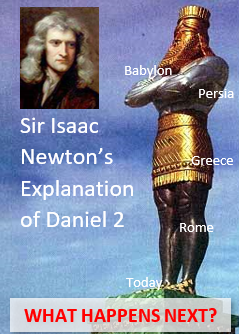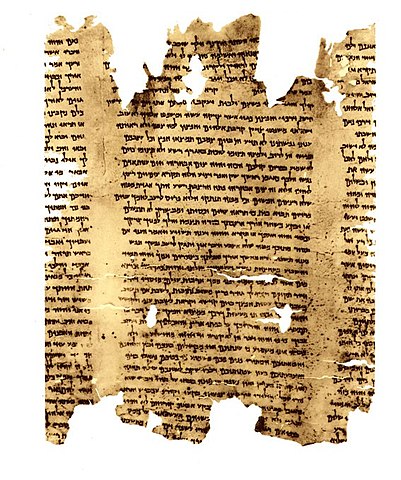God doesn't make sense, unless...
5 considerations that help get God off the hook
Recently, a chipmunk became the unfortunate victim of our family car. I was driving home from the mountains with my wife and son, and a chipmunk ran and stopped in front of the car. I thought it was a bit more off to the side then it was, and on a narrow mountain road I didn’t feel safe to swerve to assure I avoid it. I thought that I missed the creature; however, my wife, who was in the passenger seat on the side of the car that the chipmunk had been, nearly burst into tears. I didn’t want to look into the rear-view mirror, and I didn’t. I resigned myself to accept that the chipmunk was, in all probability, history. (Yes, I have a soft spot for little critters). In my heart I complained, “Why God? You could have easily held that little creature back for just one second and it would still be alive!”
"The skeptic may cite the suffering in the world as proof-solid that there is no loving, all-powerful God. But unless willing to evaluate Christianity in the light of the cross, the skeptic has not truly evaluated the God of Christianity."
All too tragically, of course, this story doesn’t even begin to describe the misery that exists in our world today! Mass shootings, millions of children abducted into child prostitution rings, birth defects of every description. If God is all-loving and all-powerful, why doesn’t He do something about it? This is no idle question—it is in fact one of the foremost reasons many have given up on God altogether! In a world in which millions of children are dying of starvation and billions of creatures—human and non-human—are suffering untold pain and loss, God just doesn’t seem to make sense!
At the risk of sounding over-ambitious, I wish to suggest 5 considerations that get God off the hook (or at least significantly so), and in the process, help us to have faith that we, our loved ones, and even the abandoned child, have a value infinitely surpassing anything that our fickle and conflicting opinions may ascribe to them, because we are valued and loved by an infinite God.
Note that the following is not specifically an attempt to defend the veracity of the teachings of the Bible, but rather to show that the teachings of the Bible, if accepted as true, provide satisfying answers to the suffering that is the allotment of all on this planet without diminishing the value of the things of the universe as the special creation of a loving, infinite, and all-powerful God.
Consideration 1: God doesn’t make sense unless we understand the nature of the original creation.
God didn’t create a world ruled by death, disease, and suffering. Genesis 1:31 states that when God finished creating the world, “it was very good!” Animals did not kill other animals for food (Gen. 1:30). Adam and Eve were provided with a vegetarian diet (Gen. 1:29), and it was God’s plan that they live forever (Gen. 2:9 and Gen. 3:22). God did not make allowance for meat in the human diet until after the flood (Gen.9:3). The opening two chapters of Genesis clearly seem to portray a world in which human death (and likely of all sentient life), suffering, predation, disease, and all that make today’s world a cauldron of misery, had no part in God’s original creation.
Consideration 2: God doesn’t make sense unless we understand who the prince of the world really is.
Before we blame the God of the Bible for being incompetent (or non-existent) because of the ills in this world, it would be well to consider who “the prince of this world” actually is. Ultimately, God is Lord of the entire universe (Matt. 11:25, Luke 10:21). But the immediate lordship of this planet belongs to Satan, the prince of darkness, God’s archenemy (John 12:31, John 14:30, John 16:11, Eph. 2:2, Rev. 12:9)! The apostle Paul, in Ephesians 6:12, used the Greek word kosmocrator—"lord of the world"—which has been used to refer to Satan in both Christian and Jewish writings in the Greek language. Satan has freedom to go wherever he pleases on this planet without confinment to geopolitical boundaries and he presented this as his qualification to join the special sessions in heaven mentioned in Job 1:7 and Job 2:2. When did Satan become prince of the world? The Bible doesn’t answer this question directly, but there are powerful clues. When God created the world, Adam and Eve were given dominion over the planet (Gen. 1:28). After they sinned, they were driven from their garden home (Gen. 3:23), and were subject to death (Gen. 3:19, 24). Disease, predation, and suffering of all kinds have largely defined life on this planet from then to this day. Satan and his angels will be destroyed in the lake of fire just before God and the Lamb make all things new and reclaim the throne occupied so long by the prince of darkness (Rev. 20:10; 22:3; see also Ezekiel 28:19). It is clear, then, that Satan took over lordship of this planet when Adam and Eve forfeited it by their disobedience. It is sadly ironic that many, not knowing what they are doing, join the rebellion against God—the giver of life—blaming Him for the suffering inflicted upon our planet by the instigator of the rebellion.
Consideration 3: God doesn’t make sense unless we understand free choice.
Why did God create Satan? He didn’t. He created a perfect angel who chose to rebel, and became Satan, the adversary of God and all that is good (Ezekiel 28:14-15). Why did God give His creatures free choice? God wanted a loving relationship with them, and true love can only be freely given—it cannot be hardwired into anyone. (God is all-powerful, but that doesn't mean He will do that which is contrary to reason). Satan persuaded many angels to join in his rebellion (Rev. 12:4), and he took the guise of a serpent in the Garden of Eden and led our first parents to choose to disregard God’s word (Gen. 3:1-7, Rev. 12:9). God could have destroyed Satan the moment he rebelled. But then His creatures would serve Him from fear rather than love. God must let Satan develop the principles of his government and let the miserable fruits be made manifest so God’s truth will be vindicated, no one will ever want to choose to go down that path again, and the future well-being of the universe will be secure (Nahum 1:9).
Consideration 4: God doesn’t make sense unless we understanding the nature of the future, restored creation.
Both the Old and New Testament scriptures indicate a re-creation of the world in its Edenic perfection (e.g., Isaiah 65:17-25; Rev. 21:1-27). The righteous dead will be resurrected in incorruptible bodies, free from infirmities and the taint of death (1 Cor. 15:50-55). The rebellion and those inseparably attached to it will be forever destroyed in a lake of fire (Rev. 20:14-15). The entire universe will be clean. There will be no more death, sorrow, crying or pain anywhere in God’s creation. All things will be made new (Rev. 21:4-5).
Consideration 5: God doesn’t make sense unless we understanding the cross!
The above considerations help explain how there can be so much evil in the world if God is good and all-powerful. However, if God knew all the pain and suffering that could result if He created beings with free choice, why did He take the chance? Did God really not care about the possibility of all of this suffering? What do you tell a parent who just lost a child to cancer or to a dreadful murder? Just that everything will be made perfect in the end? What do you say to a person to whom God's promises seem like daggers to the disappointed heart? Simply give a lesson on biblical exegesis? These things may, perhaps, satisfy the mind of an observer disconnected from the pain. But can they satisfy the aching heart?
The most repeated text in Christianity, John 3:16, states that, "God loved the world so much that He gave His one and only son so that whoever believes in Him will not perish, but have everlasting life." Jesus' death on the cross made available eternal life in a new creation free from the ravages of suffering and death to whoever believes in Him. But in addition to this, it also revealed God's love for us. Jesus, "God with us," became a human, was treated with contempt by the human race He came to save, was mocked, spat upon, flogged mercilessly with a cruel Roman scourge, nailed to the cross, and died, carrying the weight of the world's guilt and shame crying, "My God, my God, why have You forsaken me?" Note that Jesus didn't die in order for the Father to love us, but because God already loved us! It is difficult, especially for the heart, to conceive why a good God would allow all the suffering in the world. But of one thing we can be certain: If Jesus actually died on the cross for our sins as described in the Bible, God is not in any way indifferent to our sufferings! He knows it, personally, because He experienced it Himself, in the person of Jesus, and He did so because His sacrifice on the cross was the only way to rescue this planet from the thralldom of sin and death.
The skeptic may cite the suffering in the world as proof-solid that there is no loving, all-powerful God. But unless willing to evaluate Christianity in the light of the cross, the skeptic has not truly evaluated the God of Christianity.
Jesus holds out His nail-pierced hands to a world in need of a Savior. Why not say, "Yes" to Him, today?
Further study
Why couldn't God simply forgive our sins and get over it? Why did He have to have His Son tortured and murdered on the cross?
We cover this very important question on our "Answers to Objections" page.
Doesn't science prove that there never was a perfect creation free from pain and death?
One of the fairest, and most thorough books from a creationist perspective dealing with the evidences for and against creation and evolution is Faith, Reason, and Earth History by Drs. Brand and Chadwick. The book is available in hardcover and as a free download (external link).
Other related resources:
Doesn't the Bible teach that there will always be a place reserved in God's creation for suffering and sin, where the wicked will writhe in pain and curse God through the ceaseless ages of eternity?
- HellTruth.com: Does hell burn forever?
- HellAndMrFudge.org: Hell and Mr. Fudge (movie)
- EdwardFudge.com: The Fire That Consumes: A Biblical and Historical Study of the Doctrine of Final Punishment (book)
Page added: 2021.10.28
Page last modified: 2025.12.08

The Pursuit of Truth
Can the aggregate of neurons we call the brain know what Truth is?
What Sir Isaac Newton had to say about one of the most iconic prophecies of the Bible

God doesn't make sense, unless...
5 considerations that help get God off the hook.
Evidences for God
4 evidences that God exists.

